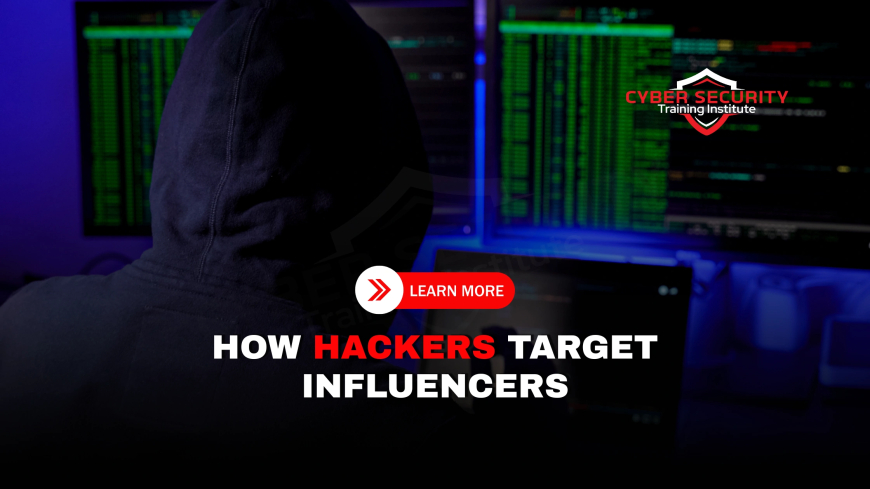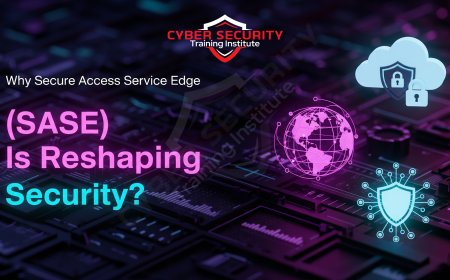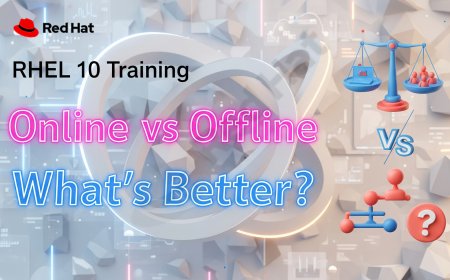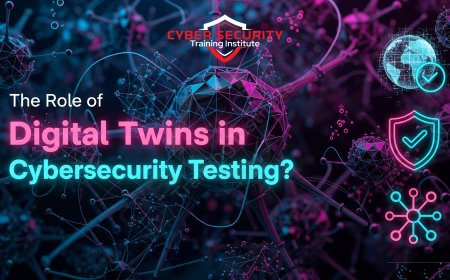Cybersecurity for Influencers | How Hackers Exploit Fame
Influencers have become household names, shaping trends, opinions, and even consumer behavior. With fame comes a unique set of challenges, one of which is the growing threat of cyberattacks. Hackers see influencers as high-value targets due to their large followings, personal data, and financial opportunities. Imagine waking up to find your social media account hijacked, your personal information leaked, or your brand's reputation tarnished. This blog post dives into the world of cybersecurity for influencers, exploring how hackers exploit fame and what you can do to protect yourself. Whether you're a seasoned influencer or just starting out, this guide offers practical advice to keep your digital life secure.

Table of Contents
- Why Influencers Are Targets
- Common Cyber Threats Influencers Face
- How Hackers Exploit Fame
- Strategies to Protect Yourself
- Case Studies: Real-Life Examples
- Conclusion
- Frequently Asked Questions
Why Influencers Are Targets
Influencers are like digital celebrities, often with thousands or millions of followers. This visibility makes them prime targets for hackers. Why? Here are a few reasons:
- Access to Large Audiences: A hacked account can be used to spread scams or malicious links to a massive audience.
- Financial Gain: Influencers often have brand deals, sponsorships, or direct income from platforms, making their accounts lucrative for hackers.
- Personal Data Exposure: Influencers share personal details online, which hackers can exploit for identity theft or blackmail.
- Reputation Damage: A single hack can ruin an influencer's credibility, affecting partnerships and follower trust.
The more famous you are, the bigger the target on your back. Hackers know that compromising an influencer's account can yield significant rewards, whether it's money, data, or chaos.
Common Cyber Threats Influencers Face
Hackers use a variety of tactics to exploit influencers. Understanding these threats is the first step to staying safe. Here's a breakdown of the most common ones:
| Threat | Description | Impact |
|---|---|---|
| Phishing Attacks | Fake emails, texts, or DMs that trick you into sharing login details or clicking malicious links. | Account takeover, data theft, or malware infection. |
| Password Breaches | Weak or reused passwords that hackers guess or steal from data leaks. | Unauthorized access to accounts or sensitive information. |
| Social Engineering | Manipulating influencers into revealing sensitive information through trust or deception. | Loss of personal or financial information. |
| Account Hijacking | Hackers gain control of social media or email accounts, often locking out the owner. | Loss of account control, damaged reputation, or financial loss. |
| Malware | Malicious software installed on your device through downloads or links, stealing data or controlling your system. | Data theft, device compromise, or spying on activities. |
These threats are not just technical jargon—they're real risks that can disrupt your career and personal life. The good news? You can take steps to minimize them.
How Hackers Exploit Fame
Hackers are clever, and they tailor their attacks to exploit the unique vulnerabilities of influencers. Here's how they do it:
- Targeting Public Information: Influencers often share details like their location, daily routines, or personal milestones. Hackers use this to craft convincing phishing emails or guess security questions.
- Exploiting Trust: Fans and brands trust influencers, so hackers impersonate them to scam followers or partners. A hacked account might send fake sponsorship requests or fraudulent links.
- Weak Passwords and No 2FA: Many influencers use simple passwords or skip two-factor authentication (2FA). Hackers exploit this to gain easy access to accounts.
- Fake Collaborations: Hackers pose as brands offering deals, sending fake contracts with malicious attachments that install malware.
- Leaked Data from Platforms: If a social media platform suffers a data breach, hackers can use stolen credentials to target influencers.
Your fame is a double-edged sword—it builds your brand but also attracts unwanted attention. Hackers know that a single breach can cause widespread damage, so they invest time in targeting you.
Strategies to Protect Yourself
Staying safe online doesn't require a tech degree. Here are practical, beginner-friendly strategies to protect your digital presence:
- Use Strong, Unique Passwords: Create passwords with at least 12 characters, mixing letters, numbers, and symbols. Use a password manager to keep track of them.
- Enable Two-Factor Authentication (2FA): 2FA adds an extra layer of security by requiring a second verification step, like a code sent to your phone.
- Be Wary of Phishing: Don't click links or share information from unsolicited messages. Verify the sender's identity before responding.
- Limit Personal Information: Avoid sharing sensitive details like your address or phone number publicly. Use a P.O. box for fan mail.
- Update Software Regularly: Keep your phone, computer, and apps updated to patch security vulnerabilities.
- Use Secure Wi-Fi: Avoid public Wi-Fi for sensitive tasks. If you must use it, consider a virtual private network (VPN) to encrypt your connection.
- Monitor Your Accounts: Regularly check for unauthorized logins or suspicious activity. Most platforms notify you of new logins.
- Backup Your Data: Save important content, like photos or contracts, in a secure cloud service or external drive.
Implementing these steps can significantly reduce your risk. Think of cybersecurity like locking your front door—it won't stop every thief, but it makes their job much harder.
Case Studies: Real-Life Examples
Real-world examples show just how devastating cyberattacks can be for influencers. Here are two anonymized cases to illustrate the risks:
- Case 1: The Phishing Scam
An influencer received an email that looked like it came from a popular brand, offering a lucrative sponsorship. The email included a link to a "contract" that installed malware on their computer. The hacker stole their social media credentials, posted scam links to their 500,000 followers, and demanded a ransom to return the account. The influencer lost a brand deal and spent weeks rebuilding trust. - Case 2: The Password Breach
A fitness influencer used the same password across multiple platforms. After a minor data breach on one site, hackers accessed their Instagram account, locking them out and posting offensive content. The influencer regained control after a month, but their follower count dropped by 20% due to the backlash.
These stories highlight the importance of vigilance. A single mistake can lead to months of damage control.
Conclusion
As an influencer, your online presence is your livelihood, but it also makes you a target for hackers. From phishing scams to account hijacking, cybercriminals exploit your fame for profit, data, or chaos. By understanding the threats and adopting simple cybersecurity practices—like strong passwords, 2FA, and cautious sharing—you can protect your accounts, reputation, and peace of mind. Cybersecurity isn't just for tech experts; it's for anyone who values their digital life. Start small, stay consistent, and keep learning to stay one step ahead of the hackers.
Frequently Asked Questions
What is a phishing attack?
A phishing attack is when hackers send fake emails, texts, or messages pretending to be someone you trust, tricking you into sharing sensitive information or clicking malicious links.
Why do hackers target influencers?
Influencers have large audiences, valuable data, and financial opportunities, making them attractive targets for hackers seeking money, data, or reputational damage.
How can I tell if an email is a phishing attempt?
Look for red flags like misspellings, generic greetings, urgent demands, or suspicious links. Verify the sender's email address and contact them directly if unsure.
What is two-factor authentication (2FA)?
2FA adds an extra security step, like a code sent to your phone or email, to verify your identity when logging in, even if someone has your password.
Can I use the same password for multiple accounts?
No, using the same password increases your risk. If one account is breached, hackers can access others. Use unique passwords for each platform.
What’s a password manager, and why should I use one?
A password manager stores and generates strong, unique passwords for your accounts, making it easier to manage them securely without memorizing them.
How do I enable 2FA on social media?
Go to your account settings, find the security or privacy section, and enable 2FA. Most platforms offer options like text codes or authenticator apps.
What should I do if my account is hacked?
Contact the platform immediately, follow their account recovery process, change your passwords, and notify your followers about the breach to prevent scams.
Is public Wi-Fi safe for influencers?
Public Wi-Fi can be risky as hackers can intercept data. Use a VPN or avoid sensitive tasks like logging into accounts when on public networks.
What’s a VPN, and do I need one?
A VPN encrypts your internet connection, protecting your data on public Wi-Fi. It’s useful for influencers who travel or work remotely.
How can I spot a fake brand collaboration offer?
Verify the sender’s email domain, avoid clicking links in unsolicited messages, and contact the brand directly through official channels to confirm.
Should I share my location on social media?
Avoid sharing real-time locations or personal addresses, as hackers can use this information for phishing or physical targeting.
What’s malware, and how do I avoid it?
Malware is harmful software that can steal data or damage your device. Avoid it by not downloading suspicious files or clicking unknown links.
Can hackers access my phone camera?
Yes, if malware is installed. Keep your phone updated, avoid shady apps, and cover your camera when not in use for extra peace of mind.
How often should I change my passwords?
Change passwords every 6–12 months or immediately if you suspect a breach. Use a password manager to make this easier.
What’s social engineering?
Social engineering is when hackers manipulate you into sharing sensitive information by building trust or creating urgency, often through impersonation.
Can I recover a hacked social media account?
Yes, most platforms have recovery processes. Act quickly, follow their steps, and provide proof of identity to regain access.
Should I back up my social media content?
Yes, back up important posts, photos, or videos to a secure cloud service or external drive in case your account is compromised.
How do I know if my account has suspicious activity?
Check for unrecognized logins, strange posts, or messages you didn’t send. Most platforms notify you of new logins via email or app alerts.
Can I trust third-party apps for analytics or scheduling?
Only use reputable apps with strong reviews and clear privacy policies. Avoid giving them full account access, and revoke permissions if you stop using them.
What's Your Reaction?
 Like
0
Like
0
 Dislike
0
Dislike
0
 Love
0
Love
0
 Funny
0
Funny
0
 Angry
0
Angry
0
 Sad
0
Sad
0
 Wow
0
Wow
0















